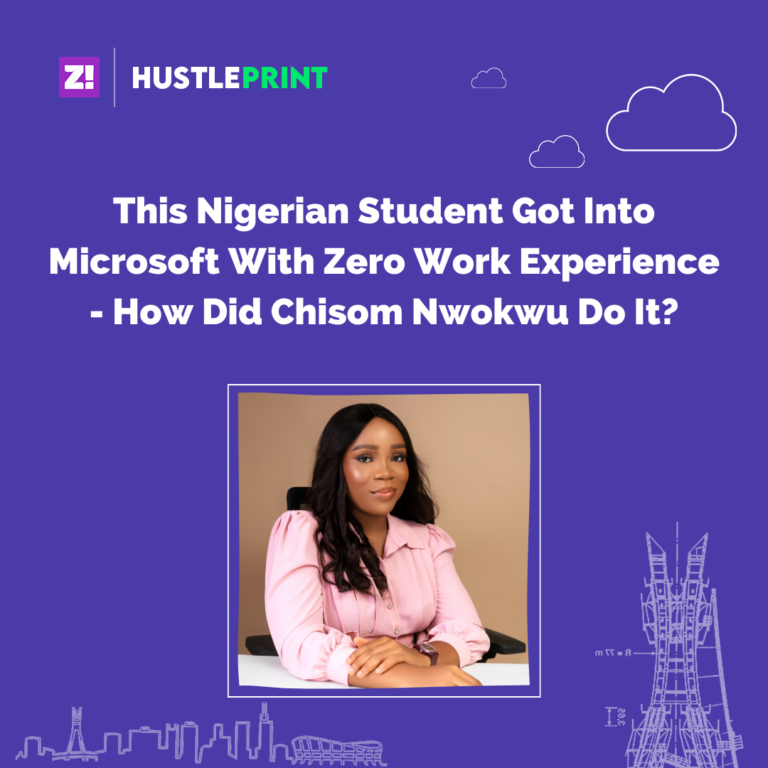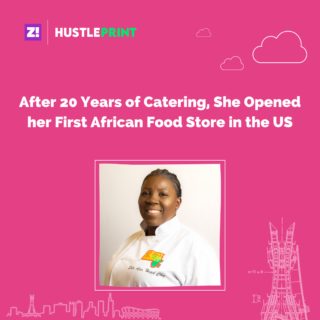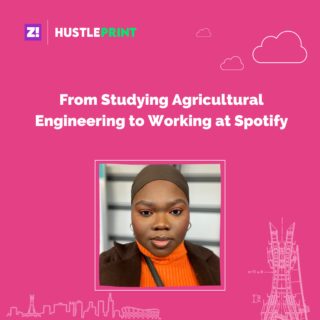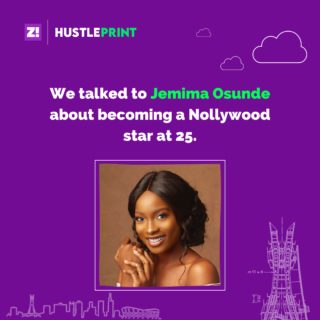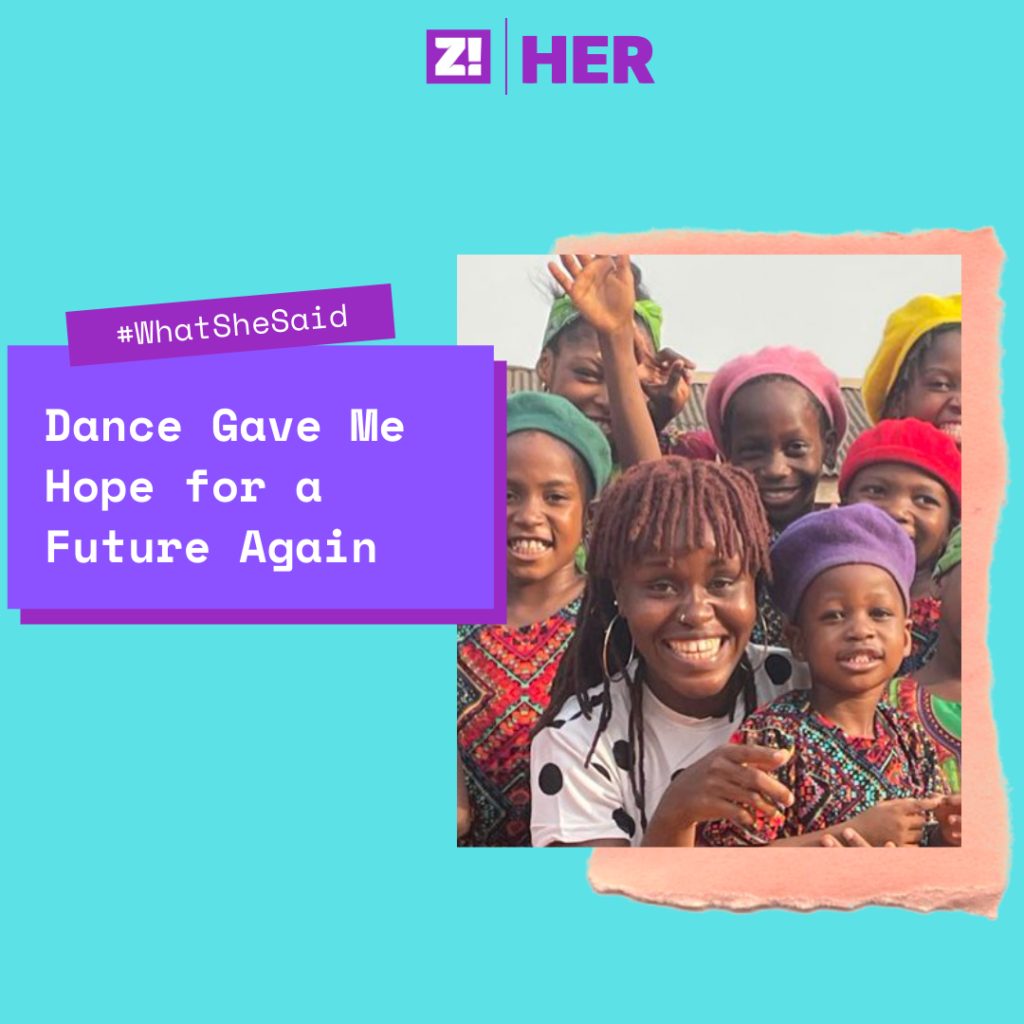
Navigating life as a woman in the world today is interesting. From Nigeria to Timbuktu, it’ll amaze you how similar all our experiences are. Every Wednesday, women the world over will share their experiences on everything from sex to politics right here.
Today’s subject for #ZikokoWhatSheSaid is Seyi Oluyole, the founder of Dream Catchers Academy for Girls. Seyi talks about being homeless at nine, finding hope in the future again through dance and motivating other girls like her that need dreams to survive.
Let’s start from the beginning. Tell me about Seyi before Dream Catchers Academy.
I’m the last born, and my siblings are much older than me — my immediate sister is nine years older than I am. That age gap limited how much I played around the house. So I spent my time curled up in front of our TV set after school to watch cartoons and music videos on NTA.
I also was never the kid who wasn’t sure about what she wanted to be. I didn’t get the “I want to be a lawyer” or “I want to be a doctor” vibe. I just lied to people about wanting to be a teacher, unprovoked.
LOL. Many of us lied too. How did you figure out what you wanted to do?
It took a bit of time. Probably would’ve happened sooner if my family wasn’t homeless by the time I was nine years old. My dad lost his job at the bank and my mum couldn’t keep everything together on her own. The country took an economic downturn in 2001, so finding a job was difficult for my dad. Things got bad so bad we had to sell our house, and eventually, we lost everything.
My nights became sleeping at the backseat in churches during night vigils and at bus parks when we couldn’t find a church. That’s how I went from lying about what I wanted to be to being hopeless about my future. There were only a few moments of bliss.
I’m so sorry. What were those moments?
The times I spent watching TV in shops while on errands or through the windows of people’s homes while we shuttled from place to place. On one of those occasions, a video caught my attention. An American singer — who I later found out was Jennifer Lopez — was performing, and she looked so intriguing. I loved the freedom her body seemed to experience as she danced. The energy she exuded from each twist, turn and leap felt liberating to watch. I tried a few of her moves on the way back home, and it was my first taste of the freedom dance brings.
Shakira would have done it for me, so I get it. What happened next?
LOL. Four years went by, and we finally moved into our own home when I was thirteen. My parents saved up money from menial jobs to rent a house at Ebute. Ebute is what you’d describe as Makoko without the water, but I didn’t mind it; we finally had a home.
Sweet! What about dance?
I got into dance when I discovered Beyonce. After being in and out of school for four years, I was in a new school where the girls raved about her, but I was clueless. I didn’t love the feeling of being left out, so I went home to find out about Queen Bey — thankfully, we had a TV again. I remember the feeling of validation I felt when I caught one of her songs on NTA. Beyonce was like a mirror — a lighter, closer version of me. She represented everything I wanted from dance when I watched Jennifer Lopez for the first time. So I started to mimic her when I was home alone.
Did you eventually go to dance school?
My mum tried to get me into one dance school, but it was too expensive. My parents’ finances were getting better, but there was no way we could afford the ₦50,000 per term. Other than that, there was no opportunity to study art in Nigeria, especially for a low-income family like mine.
So what did you do?
I started a dance community for the girls in Ebute that couldn’t afford to go to school. There were afternoons on my way back from school that I noticed girls around my age wandering the streets. I started talking to them to get familiar.
Some hawked because their families couldn’t afford to send them to school; some were from broken homes. Their realities were different, but they all felt the same sense of abandonment. I got involved in their lives. Sometimes I gave them my lunch money, and my mum was kind enough to let some of the girls sleep at our house.
And your mum didn’t mind?
She gladly opened up her home. My mother loved helping people. When you’ve had nothing to your name, it makes you understand how much people suffer. Maybe that’s why it wasn’t an odd thing to ask in the first place.
My mum had also become a pastor so this was probably missionary work for her.
That’s so inspiring.
Yeah! Once the girls were in the picture, dance went from being something for me to being motivation for other people. We started hanging out on Saturdays at the church while my mother went in for rehearsals. Since I didn’t have any professional experience, I showed them everything I learned from watching music videos over the years. They loved it. My only condition for being a part of the rehearsals was promising to go to school if they could afford it.
The smiles on their faces whenever we danced round Ebute are still so vivid. In those moments, I knew I wanted to build something that would last. But trust life to happen when you least expect it.
Ah. What happened?
We moved. Two years after we landed at Ebute, my family moved to Ikorodu — I was fifteen. I can’t remember how many girls we had at the house, but only four of the girls from Ebute could move with us, and I kept teaching them to dance.
I went to uni when I was 16, then gambled with faith a bit. At 20, I applied for a master’s degree in Human Services at a university in Nebraska and the Society of Performing Arts Nigeria (SPAN). I got admission into both. America seemed like a more practical option — it was America, and I had a sponsor. As much as I wanted to dance, I was scared that I couldn’t really make it as a dancer. I didn’t see a lot of women making a living then. Besides, I had a sponsor, a business owner giving scholarships at the time.
So you went to America?
I did. Then my sponsor passed away.
Ah—
I was sad to lose him, but that wasn’t my main issue. I was volunteering at a non-profit before my sponsor passed, so I focused on it while I tried to figure out my next step. It aligned with my passion to work with girls from low-income areas.
I loved the job, but the kids in America? They were just too entitled. Nothing like my Ikorodu girls. They complained about the type of meals they got, clothes, everything. I didn’t feel fulfilled. My family tried to push back, but America was not for me. So I left.
What was for you?
I went back to Ikorodu when I was 22. Syncing again was relatively easy, but I needed money — to rent a house for myself and the girls I wanted to teach. The four girls I started off with eventually got into uni when I left. That was a strong motivation for me to go back and try to help other girls as well. So I got a job and used the money I earned to fund the programme for two years. I rented a house, started to look for girls in Ikorodu that needed a home, moved in with them and that’s how Dream Catchers — an art academy for underprivileged girls — kicked off in Ikorodu.
Nice. How do you choose a child to help?
Things have changed a lot over the years, but Ebute is always on the list of where we find the girls we help. It will always be home.
When I was the only one in control, picking a child was based on vibes. Now, we have a board that selects the girls based on certain criteria that match our limited resources. For instance, we rarely sign up girls above nine, because it’s difficult to change core habits they’ve built. Health needs are also key factors we consider in our process. As much as we want to help every girl that needs us, it’s equally important to be honest about our current capacity. It’s a heartbreaking reality, but we have to turn away some of the girls until we have the right partnerships that enable us to cater to special health requirements.
The first few weeks in the hostel are usually the toughest. I have to make them familiar with things like toilets and how flushers work. Sometimes they go weeks without talking or act out from the trauma or fear they experience at home, but they eventually connect. Therapy is an important part of the program for us. We push as much as we can to help the girls but we’ve had to let some go as well. One time, a girl scaled the fence in the early hours of the morning so we had to send her home. It’s never easy once you’re attached to a child — I had to start therapy to get through the emotions.
As much as we have tough moments, they are the funniest kids you’ll ever meet. And the talent? E choke. These days they write their own songs, and I couldn’t be prouder. I can’t go more than a day without going to the house to play with them or make sure they’re okay. I wouldn’t trade loving them for the world.
That’s so sweet. What’s your vision for them?
I don’t want them to put themselves in the “I can’t do it because I’m a woman” box. It took me too long to get to this point, so I want the girls at Dream Catchers to get an early start on their dreams regardless of their economic background. I want Dream Catchers to be the Juilliard of Africa — a legacy that outlives me. Right now, we have 27 girls, and we’re expanding the school to accomodate 100 girls — we want the girls to maintain a tight-knit community. Once we hit that target and have the resources to support each child, we’ll be expanding to other parts of Nigeria and then Africa. 26-year-old me would have been scared, but this 30-year-old Seyi has the structure to take on big dreams.
And you? What do you want for yourself?
I want to go to dance school — I’ve waited too long. I turned 30 this year, so I’m taking life by the horns and trying again.
30 and dangerous. Love it. What do you do when you’re not chasing these big goals?
I try to make friends. Sometimes, it’s hard to connect with people in between everything going on at Dream Catchers. So this year, I’m open to building friendships. I’m currently looking for a Gen Z friend that can show me how TikTok works — it’s a hazard to millennials. Other than that, I buy a lot of ice cream from Hans and Rene and walk my dogs — Amsterdam and Stormi Peru.

